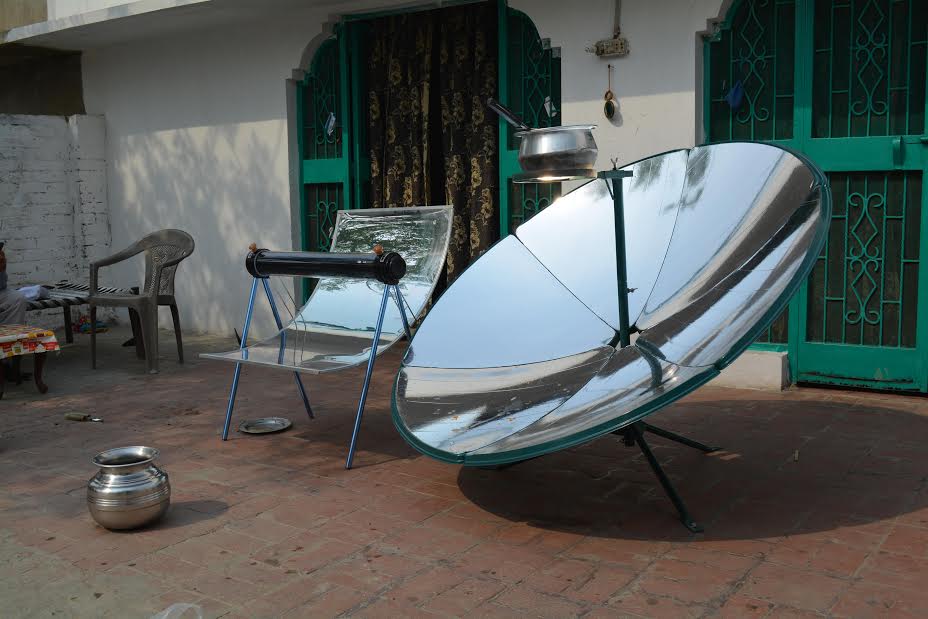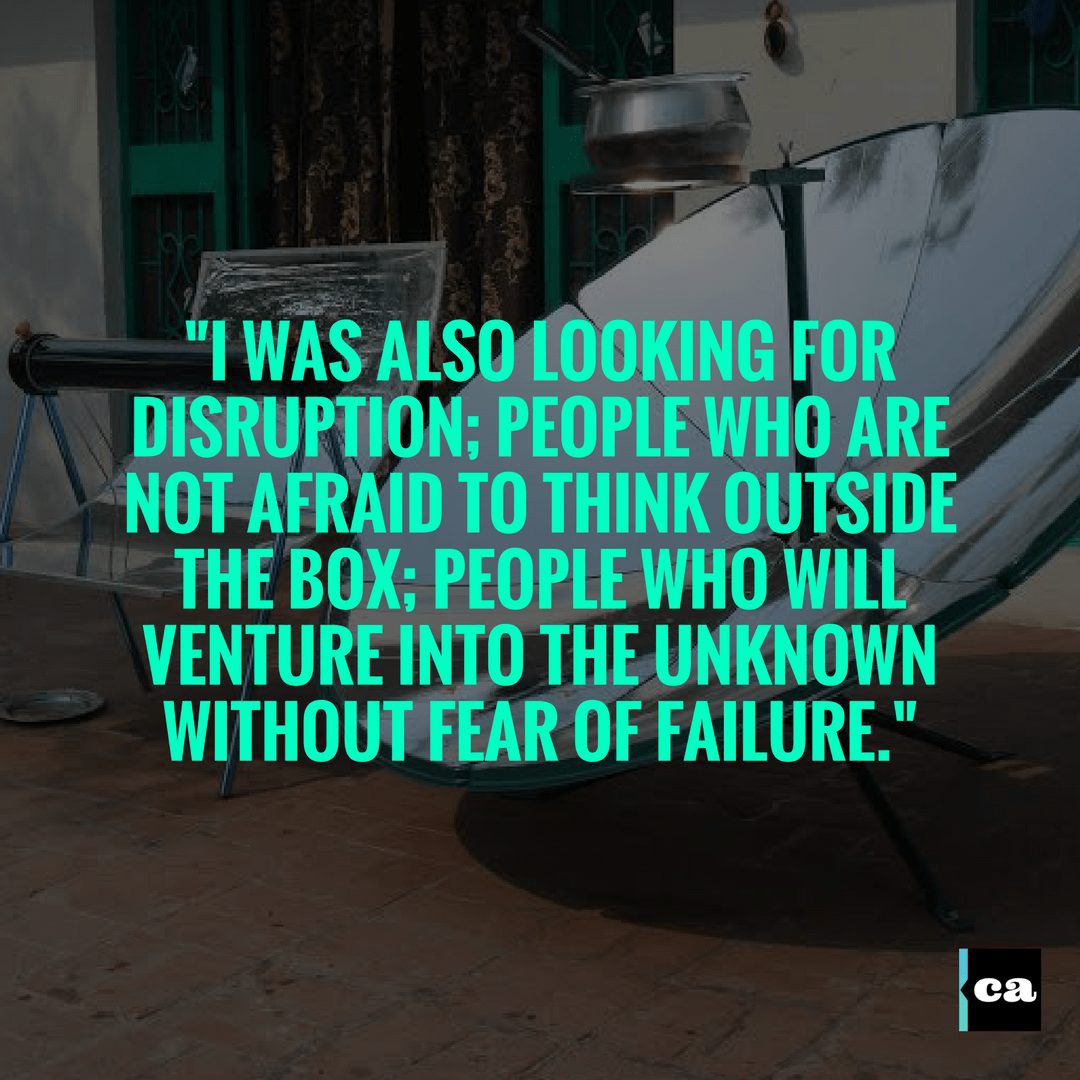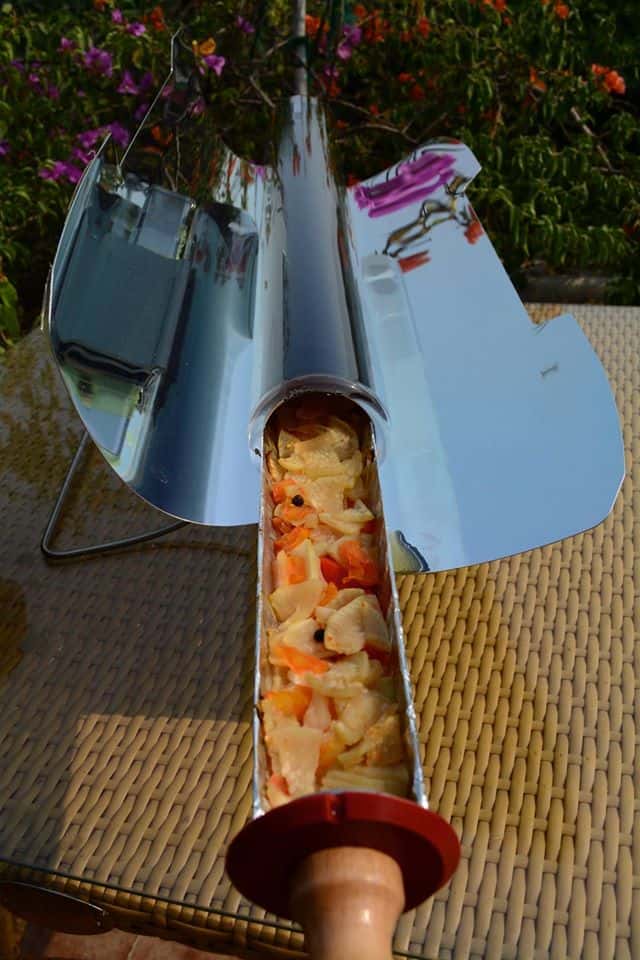We recently caught up with Khizr I. Tajammul, the founder and CEO of Jaan Pakistan – a social enterprise, researching and producing affordable renewable energy solutions for low-income communities across Pakistan.
Jaan Pakistan won the Rwanga Social Startup Competition at the fifth One Young World summit last year and is currently working on introducing solar cook stoves to urban slums in Lahore. 40% of Pakistan’s 200 million population lives in off-grid areas; these communities are spread across roughly 50,000 villages and they primarily depend on firewood and dung cakes for their energy needs.
“3 billion people in the world burn firewood and dung to cook food”
Problems associated with this consumption includes deforestation, rising costs of firewood against depreciating supply and respiratory health issues leading to loss of life. Jaan Pakistan is a social startup that is introducing a range of clean cookstoves to help reduce the impact of solid fuel fumes on the environment.
They are raising £15,000 on UpEffect to build a greener world for outdoor foodies with their renewable energy cookstoves.

1) What were you up to before Jaan Pakistan?
I was a columnist for a leading English newspaper called The Nation. I was also the General Manager of a global communications outfit, called Publicis. I had a deep interest in behavior change communications, so I primarily worked with organizations in the social sector. I initiated a social cause marketing cell at Publicis Pakistan, the first of its kind. Business was good and I was offered equity in the firm. I worked at Publicis for a little over six years. Before Publicis, I was a motivational speaker and a project coordinator for a nationwide advocacy campaign on water conservation called Pani Pakistan.
2) What was the inspiration behind Jaan Pakistan?
Bunker Roy’s commitment to building a center of learning in Rajasthan called Barefoot College, where anybody who wished to learn, or teach, could join, regardless of social background or prior education. To date, Barefoot College has trained thousands of women across 74 countries in the art of develop solar electrification solutions and selling these solutions. These women learn from each other and mentors over six months, mostly through sign language, and then they return to their respective villages, where they illuminate homes for the very first time.

3) What has been the hardest lesson you’ve had to learn as entrepreneur?
Being obsessive about a certain end goal can lead to a disconnect from some of our nearest and dearest people. Working around the clock, or staying pre-occupied with work related thoughts, means you’re neglecting a series of other roles and responsibilities in life and the pressure to deal with accruing expectations, or disappointments, continues to mount. Managing these expectations through timely communication is key and it’s a hard lesson to learn because it often comes at the cost of severed ties with a loved one.
4) With that said, how do you think this differs for social entrepreneurs?
Social entrepreneurs have access to social capital which can take the shape of donations, volunteers, public goodwill, encouragement from family and friends, media exposure and so on. All of the above help the social entrepreneur in getting to the end goal sooner. Social entrepreneurs, as opposed to entrepreneurs, have the ‘buy-in’ of the community they serve; they have their support because often times they are the first ones to address a certain problem; and the first ones to commit to solving it. Considering this, I suppose people can empathize more with social entrepreneurs.

5) What standout qualities were you looking out for when building your team?
I was looking for empathy; people who connect well with other different people, from different backgrounds, facing different problems.
Apart from that

And lastly, I was also looking to fill certain skills sets essential to the success of Jaan Pakistan. For example, at the outset, we didn’t have any engineers on our team, but today we have two pro bono consultants assisting us with procurement and indigenization.
6) If given the option, would there be anything that you would change in your entrepreneurial journey thus far?
It’s been a great experience thus far. I don’t think I have been on this journey long enough to have the benefit of retrospect. Having said that, there is one thing I would change: the discrepancy between capacity and ambition. Setting up realistic goals is essential to not feeling worn out about repeatedly missing internal deadlines. It’s natural though because, as an entrepreneur, one wants to achieve sustainability at the soonest possible and often times strategic, hypothetical timelines have nothing to do with the time it actually takes to conclude a certain task and entrepreneurs should learn to escape the inevitable disappoint through better, more realistic planning of short term-goals.

7) Any advice for aspiring entrepreneurs specifically hoping to make a social impact?
Listen to people and their problems and involve them in the problem solving process. Spend more time in the field and less time in the office. Be flexible. Be ready to pivot in a blink of an eye. Do not get married to any single idea; know that developing a solution is an iterative process; the idea is to build, test, fail and to repeat that cycle until you arrive at a service, product or model that works for everyone. Start small ideally and get involved in every process at the workplace. Always think about the cheapest, fastest and most reliable way of doing something – ingrain efficiencies into business processes early on. Cultivate a collaborative spirit at your work because change does not happen in isolation. Be willing and ready to challenge yourself on some of your own preconceived ideas. Amplify other voices at the office; create productive friction through a diverse set of thoughts.
Jaan Pakistan has raised over £13,000 in 7 days on UpEffect.
They have a wide selection of rewards available for supporters of clean energy technologies here: bit.ly/jaanup







